- In this comprehensive guide, explore practical and sustainable living approaches designed for Orlando locals. Expect actionable orlando zero waste living tips , local resources, sustainable shopping strategies, and real-world insights that support your transition to a greener life.
Did you know that Central Florida’s Orange County generates over 1.5 million tons of solid waste every year, much of which could be avoided through simple sustainable habits? As Orlando emerges as one of the fastest growing metropolitan areas, residents are uniquely positioned to make a meaningful impact. From Main St. to Winter Park and beyond, embracing zero waste living isn’t just a trend—it’s becoming a City Beautiful necessity. This guide delivers the essential Orlando zero waste living tips, real examples, and empowering resources you need to build a healthier, more sustainable lifestyle. Dive in and discover how every small change can create a ripple of improvement across your home, community, and the entire Orlando area.
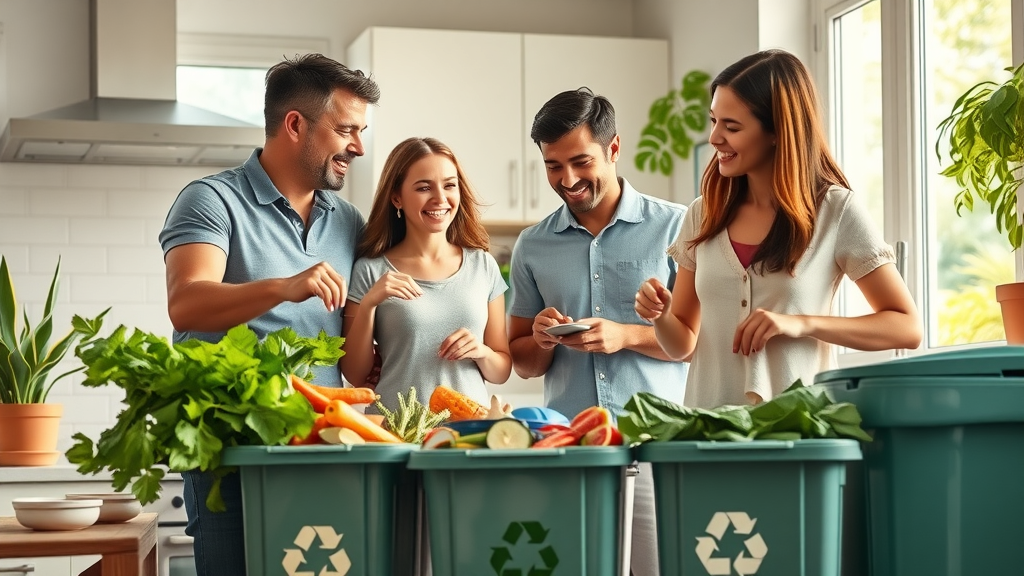
Understanding Orlando Zero Waste Living Tips: Why It Matters in the City Beautiful
The concept of zero waste living centers around minimizing the amount of waste that ends up in landfills or incinerators, focusing instead on reuse, recycling, and reduction. In the heart of Central Florida—aptly named the City Beautiful—this lifestyle holds special significance. Orlando’s stunning green spaces, bustling theme parks, vibrant food truck scene, and thriving farmers markets make it a truly unique city to adopt sustainable changes. Every piece of food scraps, plastics, or yard waste avoided contributes directly to a cleaner environment and a robust local food system.
Transitioning to a zero waste philosophy profoundly benefits both residents and the broader Orlando area. By practicing waste reduction , participating in local recycling programs , and choosing resource-efficient products, families and individuals significantly reduce their ecological footprint. Moreover, supporting sustainability initiatives and city programs enhances the city’s resilience and beauty. Learning actionable orlando zero waste living tips tailors the global zero waste movement to Orlando’s unique culture—empowering residents to make choices that are both practical and impactful.
Ultimately, embracing these living tips is about cultivating a more conscious life. As you implement these steps, you help protect beloved neighborhoods like Winter Park, safeguard natural springs, and promote Orlando’s reputation as a leader in environmentally friendly urban living. With the right knowledge and support, every household can contribute to a greener, healthier City Beautiful for generations to come.
Practical Orlando Zero Waste Living Tips for Everyday Life
- Start composting organic waste at home
- Opt for reusable shopping bags and containers at sustainable shopping spots
- Use bulk refill stores and local good fills
- Participate in farmers market initiatives
- Reduce single-use plastics and packaging
Making small, everyday adjustments can have a significant cumulative effect on Orlando’s environment. Start composting organic waste at home by setting up a compost bin for food scraps and yard waste—these materials will break down naturally, avoiding landfill buildup and returning nutrients to your garden. When shopping at a grocery store or farmers market, carry durable reusable shopping bags and containers instead of taking new single-use bags each time. This simple switch not only minimizes solid waste but also sets a positive example in the community.
Explore bulk refill stores and local good fills throughout the Orlando area. These shops allow you to purchase food, cleaning products, and even household items without excess packaging—just bring your own containers and fill up on what you need. Look for food trucks and restaurants committed to sustainability, and always prioritize unpackaged or minimally packaged goods. Finally, supporting local farmers market initiatives not only gives you access to fresh produce but also encourages a food system built on sustainability and reduced transportation waste.
If you’re new to eco-friendly habits, remember that you don’t need to be perfect. Start with the adjustments that fit your lifestyle, then branch out as you grow more comfortable. As a local Orlando zero waste advocate puts it:
"Sustainable living is not about perfection, but about making better choices every day." – Local Orlando Zero Waste Advocate
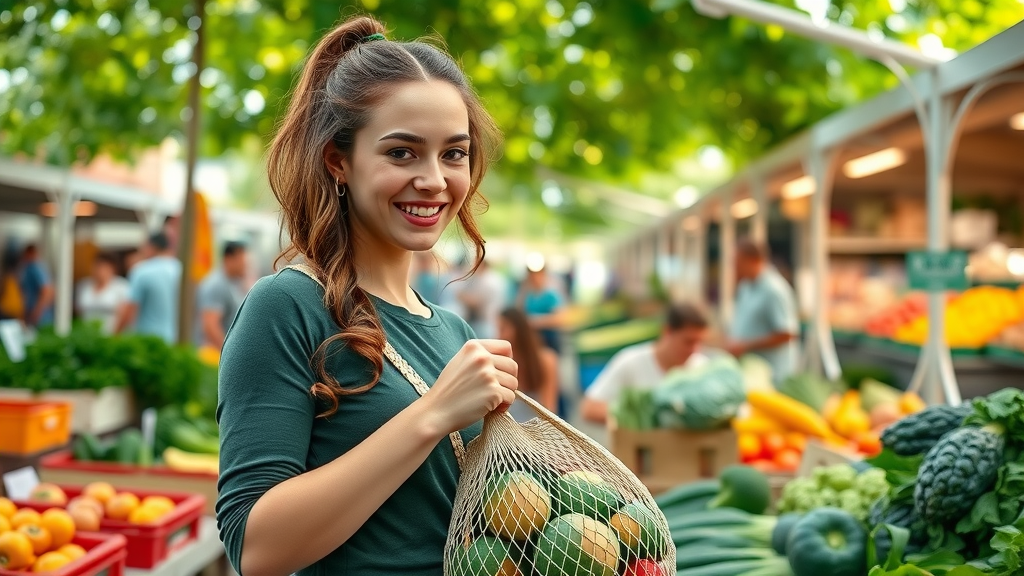
Sustainable Living in Orlando: Embracing a City Beautiful Philosophy
The “City Beautiful” nickname isn’t just about Orlando’s scenic lakes and lush parks—it’s a mindset that values ongoing stewardship and sustainable living in every neighborhood. Orlando’s rapid growth makes it more important than ever to integrate waste reduction, eco-friendly habits, and local support structures. Choosing to live mindfully not only safeguards the beauty and health of our city but also strengthens community connections, public spaces, and residential wellness.
By leveraging local resources—like community gardens, farmers markets, sustainable shopping outlets, and city initiatives—residents can embed sustainability into daily routines. Whether it’s incorporating eco-friendly home décor, helping youth recycle at schools, or participating in Green Up Orlando events, every effort contributes to maintaining the city’s natural charm. These collective actions reinforce Orlando’s position as a leader in urban sustainability, making it easier for every resident to live a conscious, impactful life.
Embracing a City Beautiful philosophy means looking beyond the individual to create broader change. From installing compost bins in neighborhood parks to advocating for city-wide recycling programs, every step moves Orlando closer to a resilient, vibrant, and environmentally friendly future.
Waste Reduction at Home: Key Orlando Zero Waste Living Tips
- Evaluate your household waste habits
- Transition to compostable or recyclable alternatives
- Identify common sources of food and organic waste
- Engage the whole family in adopting sustainable habits
The first step in effective waste reduction is awareness. Start by evaluating how much solid waste your household generates each week—keep track of what goes into your trash, recycling bin, and compost bin. Pay special attention to common items like food scraps, single-use plastics, yard waste, and packaging from household items and groceries. This simple audit will highlight where you can make the most immediate improvements.
Once you know your waste patterns, transition to compostable or recyclable alternatives. Replace paper towels with washable cloths, shift from plastic wrap to beeswax sheets, or trade chemical cleaners for natural, bulk-refill varieties. Establish a system for composting organic waste, and inform your family about what (and what not) to place in each bin. Consider using food scraps to enrich your garden or community green space instead of sending them to a landfill.
Crucially, waste reduction is a team effort. Engage all household members—children, roommates, or partners—in adopting zero waste habits. Make sustainable living fun by tracking progress, celebrating milestones, and inventing creative upcycling and repurposing projects that support a vibrant conscious life. Over time, you’ll notice a significant difference in your home, wallet, and the environment.
Sustainable Shopping in Orlando: Where and How
Sustainable shopping isn’t just about what you buy—it’s about how you shop. In the Orlando area, the rise of eco-friendly stores, refill shops, and local markets makes it easier than ever to reduce packaging waste and make environmentally friendly choices. Seek out refill stores along vibrant corridors like Main St., where you can bring clean containers and stock up on essentials like grains, cleaning supplies, personal care products, and spices without adding to landfill.
Look for the “Good Fills” concept in shop names or product lines. These locations offer bulk goods and household items that can be weighed out and paid for by the ounce or pound, drastically cutting down on excess packaging. Many specialty stores even feature eco-conscious home decor, cleaning solutions, and garden supplies.
Shopping at local markets and refill stores isn’t only smart for the environment—it’s a boost to the local economy and supports family farmers and entrepreneurs across Central Florida. Focus on stores that invest in sustainability initiatives, provide visible eco-labeling, and encourage customers to reduce plastic and styrofoam consumption. Small adjustments to your weekly shopping can create big savings and solid environmental benefits over time.
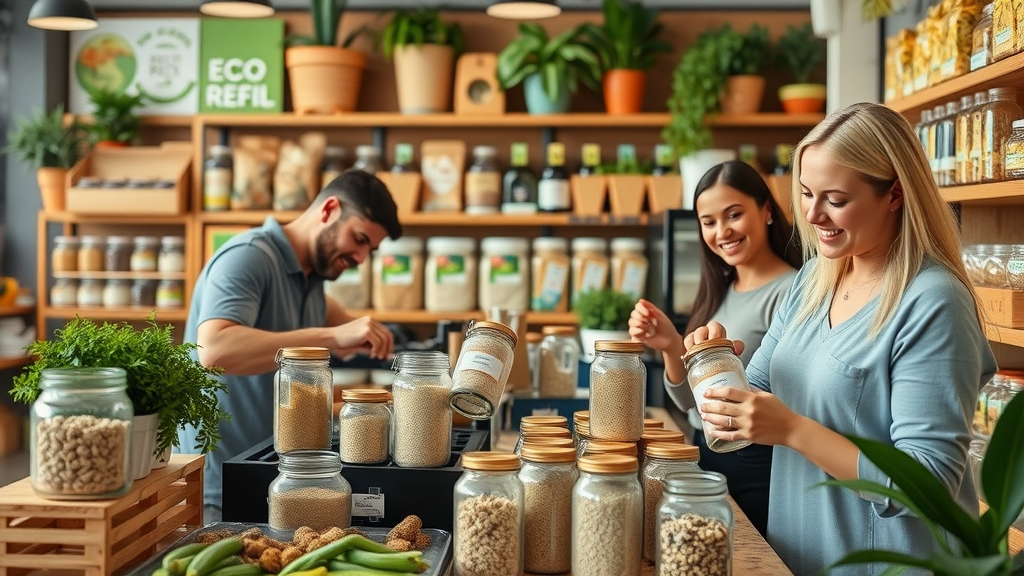
The Good Fills Concept: Refilling for Orlando Zero Waste Success
The “ Good Fills ” concept has taken off across the Orlando area as residents seek convenient, affordable ways to adopt zero waste habits. At a good fills store, you bring your containers—jars, bottles, or bags—and fill them directly from bulk bins of spices, grains, personal care products, or cleaning supplies. This system virtually eliminates the need for disposable packaging, while also allowing you to buy only what you require and minimize waste at the source.
Refilling creates a closed-loop system for grocery shopping that brings environmental benefits to Orlando’s neighborhoods. Shoppers cut down on costs, avoid unnecessary single-use plastics, and support businesses aligned with the City Beautiful’s sustainable values. These stores often stock environmentally friendly household items and unique offerings like Florida-made soaps, upcycled home decor, or locally grown teas. Pay attention to seasonal deals or sustainability initiatives, and get to know the shopkeepers—they’re usually a great source for advice on zero waste living tips.
As more Orlando residents use bulk refill stores, the city is seeing a cultural shift toward more conscious consumer habits. Both residents and business owners benefit from a cleaner, greener, and more mindful approach to everyday life.
Farmers Market Finds: Supporting Orlando Zero Waste Living Tips Locally
- Shop for unpackaged produce
- Bring reusable bags and containers
- Support local organic farmers
- Reduce transportation and packaging waste
One of the best places to practice orlando zero waste living tips is your community’s farmers market. Orlando’s farmers markets—in neighborhoods like Winter Park, downtown, or the Milk District—feature a bounty of fresh produce, locally made food, and household goods sold directly by Central Florida growers and artisans. Shopping here allows you to hand-pick unpackaged fruits and vegetables, dramatically cutting down on the plastic and foam trays common in big box groceries.
Always remember to bring your own cloth bags and smaller produce sacks or containers for berries, leafy greens, or grains. Many market vendors support sustainable living by incentivizing the use of reusables or offering discounts to eco-conscious shoppers. You’ll also build relationships with local organic farmers, who prioritize environmentally friendly growing methods and add vibrancy to Orlando’s food system. By making farmers market trips a regular routine, you’re directly supporting regional agriculture, reducing food miles and packaging, and inspiring others in the Orlando area to do the same.
If you’re new to these markets, ask for advice on in-season fresh produce, or seek out food trucks offering zero waste utensils and recycling bins. Over time, this habit not only benefits the environment but can reduce your grocery bills and introduce your family to a wider variety of flavors.
Composting and Managing Organic Waste: The Orlando Guide
Composting is perhaps the single most powerful action Orlando residents can take to keep food scraps and yard waste out of landfills. By diverting organic waste, you lower methane emissions and create valuable, chemical-free fertilizer for your plants and gardens. Options for composting abound, from simple DIY backyard compost bins to innovative city and county drop-off programs.
A composting program in Orlando can be as simple or sophisticated as your needs require. For those with yards, start a compost bin for vegetable peels, eggshells, coffee grounds, and garden trimmings. Apartment dwellers can choose smaller, odor-proof systems for balconies or kitchens, or take advantage of local drop-off sites scattered throughout the Orlando area. Several neighborhood gardens and city green initiatives run composting workshops to help beginners get started and avoid common mistakes.
To help you compare the available options, here’s an overview of local composting solutions:
| Option | Description | Best For | Participation |
|---|---|---|---|
| Backyard Composting | Home compost bins for food scraps, yard waste, and organic materials. Simple to maintain with regular turning. | Residents with gardens or outdoor space | High—full control over process & output |
| City/County Compost Programs | Orange County and City of Orlando operate drop-off and pilot collection services for organic waste. | All residents, especially those without yards | Medium—requires drop-off at designated centers |
| Commercial Compost Drop-Off | Private companies collect organic waste from businesses and homes for large-scale composting. | Businesses, apartments, food trucks | Low to medium—depends on provider |
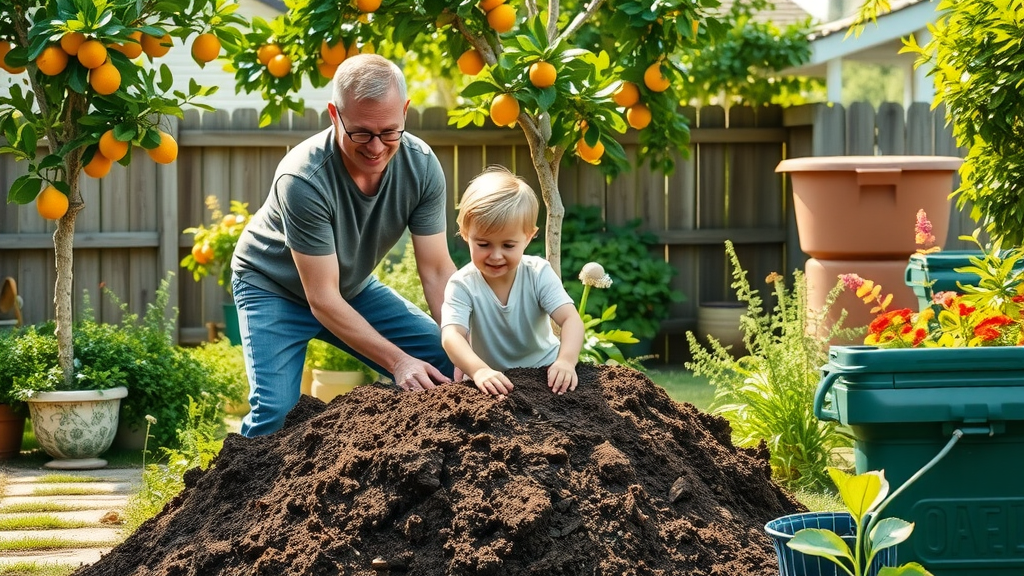
The Financial Side of Orlando Zero Waste Living Tips
Many newcomers fear that zero waste living is expensive, but real-world Orlando experience suggests the opposite. By actively practicing waste reduction, shopping at local farmers markets, and using refill stores, residents often spend less on groceries and household expenses over time. Why? Focusing on only buying what you need—especially in bulk—means fewer impulse buys, less spoiled food, and smaller trash collection bills.
Orlando’s sustainability initiatives have led local businesses to stock affordable environmentally friendly products that suit any budget. You’ll find that reusable containers quickly pay for themselves and composting creates free fertilizer, replacing store-bought synthetic fertilizers. Over time, even modest investments in eco-friendly home decor or tools can create substantial savings by minimizing the need for disposable products. Anyone can benefit—students, families, retirees, and young professionals alike.
Learning where to shop sustainably, participating in city recycling programs, and using tech tools (like waste tracker apps) also help Orlando residents keep tabs on spending and savings. With the city’s robust support networks, going zero waste has never been more financially achievable or rewarding for households of any size.
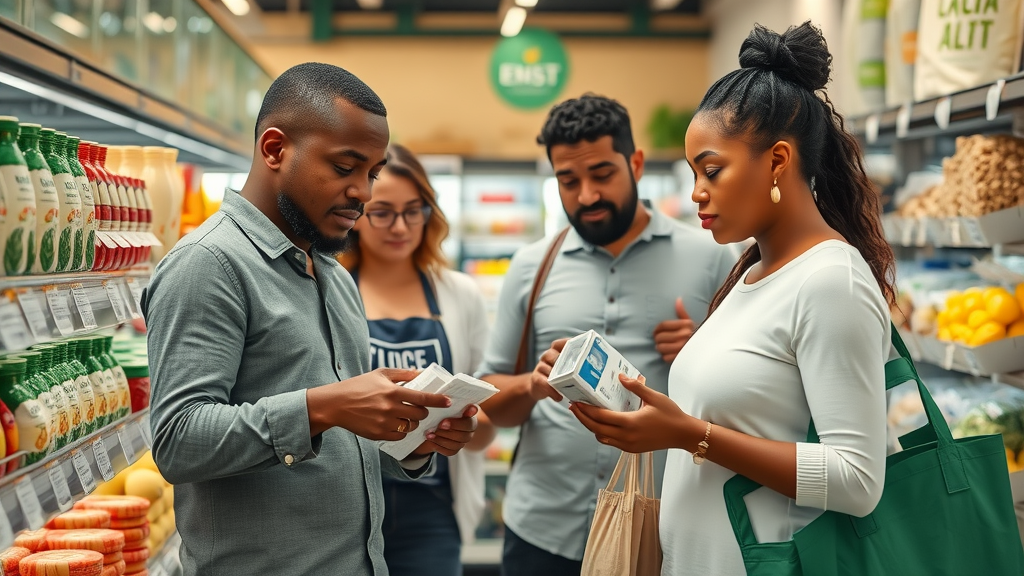
Breaking Myths: Is Orlando Zero Waste Living Expensive or Achievable?
One of the most common misconceptions about orlando zero waste living tips is that they are costly or impractical for families, renters, or busy students. However, a growing number of Orlando area residents find the opposite to be true: the right approach makes zero waste accessible to all. Many of the best tips are low-cost or even free, such as refusing plastic utensils, bringing a reusable water bottle to a theme park, or asking for a to-go box at a local food truck rather than accepting foam packaging.
Many financial hurdles disappear when you consider the cumulative impact of reduced food waste, avoiding single-use packaging, and replacing household items only as needed. There are also citywide solid waste and recycling programs that support renters and those living in multi-unit buildings. Orlando’s strong sense of community fosters resource sharing, from lending libraries and swap meets to sustainability workshops and educational events. As one local puts it:
"Going zero waste in Orlando is more accessible than most people think – resources and community support are just around the corner."
With educational resources, a passionate local community, and a growing number of eco-friendly businesses, Orlando makes it easier every day to adopt a conscious life without breaking the bank.
The Five Rules and R’s of Orlando Zero Waste Living Tips
- Refuse unnecessary items
- Reduce overall consumption
- Reuse containers and goods
- Repurpose and upcycle
- Recycle and compost
Every zero waste journey is built upon the “5 R’s.” First, refuse what you don’t need: say ‘no’ to free pens, single-use items, or plastic cutlery. Next, reduce your consumption by being mindful—buy only what you’ll use, shop intentionally, and steer clear of excess. The third tenet is to reuse wherever possible: bring shopping bags and containers, fill water bottles, and choose quality products that last.
Repurpose and upcycle invites creativity—transform glass jars into storage, convert old t-shirts into cleaning cloths, or reimagine home decor with materials you already have. Finally, prioritize recycle and compost as a last resort for materials that can’t be eliminated or reused. These rules aren’t just theory; they structure the most successful orlando zero waste living tips and are central to both family and city initiatives. When implemented together, they help City Beautiful residents live more sustainably, reduce solid waste, and lead by example.
Integrating the 5R’s into your daily routine creates lasting habits and sparks positive change throughout Central Florida. Over time, these rules become second nature, supporting both your budget and the beloved environment of Orlando.
Integrating the 5R’s with City Beautiful Sustainable Living
Making the 5R’s part of your City Beautiful lifestyle is easier than you might think. Refusing unnecessary flyers at a local event or reducing purchases at a theme park gift shop are small yet impactful actions. Reusing containers at the Main St. refill store, or repurposing food scraps into compost for a neighborhood garden, brings these principles to life right in your community.
Join Orlando’s many sustainability initiatives—like Zero Waste Orlando workshops or Green Up projects—that teach, reinforce, and celebrate these rules in a supportive environment. Whether you’re an individual, family, or part of a business, every action contributes to Orlando's reputation as a beacon of environmentally friendly, sustainable living.
Expand your impact by sharing what you learn with friends, neighbors, and local organizations, and by participating in city events that champion recycling, waste reduction, and composting. The connection between zero waste living and the City Beautiful philosophy doubles your positive influence and creates a ripple effect of responsible choices throughout the Orlando area and all of Central Florida.
Community Resources and Orlando Zero Waste Initiatives
- Zero waste workshops and meet-ups
- City Beautiful green programs
- Local business partnerships supporting sustainable shopping
Orlando boasts abundant opportunities for residents to deepen their knowledge and commitment to zero waste living. The city and partner organizations routinely offer zero waste workshops and engaging community meet-ups, addressing everything from waste audits and composting to upcycling and eco-friendly home decor. Check your local library, public parks, or city websites for schedules and join in to meet other residents embracing a conscious life.
In addition, City Beautiful green programs like Keep Orlando Beautiful, Green Up Orlando, and Orange County’s sustainability initiatives aim to mainstream waste reduction and recycling practices citywide. Through these programs, residents can access recycling bins and composting resources, learn from industry leaders, and participate in tree plantings or public cleanups.
Many local businesses now partner with environmental groups to champion the cause—some offer discounts or incentives for customers who shop with reusables, participate in recycling, or join neighborhood clean-up events. By leveraging these resources, you gain support and inspiration for your zero waste journey and contribute to a cleaner, greener Orlando area for all.
The Role of Technology: Apps and Tools for Orlando Zero Waste Living
- Waste tracker apps
- Orlando farmers market locators
- Digital sustainable shopping directories
Technology can be a powerful ally in your Orlando zero waste journey. Several free or low-cost waste tracker apps allow you to log trash, recycling, and composting habits, offering personalized suggestions for improvement. These tools make it easy to set goals, monitor progress, and join citywide challenges or local competitions aimed at community-wide waste reduction.
Use digital directories to discover the best sustainable shopping outlets, bulk refill stores, and specialty markets around Orlando. Whether you’re new in town or a long-term resident, these online resources highlight refill stations, ethical brands, and plastic-free shopping alternatives—just filter by neighborhood or product type. Farmers market locators help you find weekly markets, special events, and farm-to-table pop-ups throughout central Florida, ensuring you can buy local, zero waste produce year-round.
Don’t overlook Orlando’s own digital sustainability resources and community groups—many offer tips, challenges, and instructions for composting, recycling, or zero waste crafts. By integrating these tools, you’ll build lasting habits, stay inspired, and keep City Beautiful on the cutting edge of environmental stewardship.
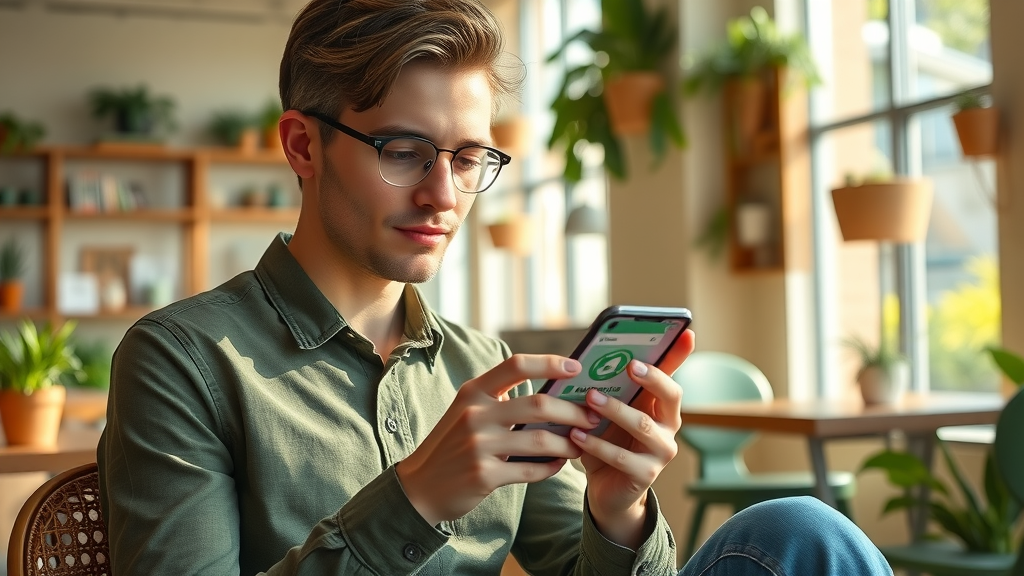
Overcoming Common Challenges in Orlando Zero Waste Living
- Finding bulk and refill stores
- Managing organic waste in apartments
- Sustaining motivation through local support
- Avoiding greenwashing
Despite Orlando’s many advantages, transitioning to zero waste isn’t without obstacles. Some neighborhoods may lack nearby bulk or refill stores , making it trickier to shop package-free. In these cases, coordinate with neighbors, carpool to eco-conscious shops, or lobby local grocery chains to introduce bulk sections. If you live in an apartment or condo, compact compost bins or city-run drop-off programs help manage food scraps—seek out multi-family building solutions or join community composting efforts for greater impact.
Sustaining motivation can be tough when the journey feels isolating. Combat this by joining workshops, zero waste meet-ups, and online groups dedicated to City Beautiful’s sustainable living movement. Celebrate small wins, track household achievements, and draw inspiration from Orlando leaders already making a difference. Always double-check “eco” claims from local shops—avoid greenwashing by looking for certifications, third-party recycling programs, and transparency about sourcing and ingredients.
Most importantly, recognize that progress—not perfection—is the goal. The Orlando area provides a supportive environment, and every intentional step you take inspires others to follow suit. With persistence and community backing, you can overcome any zero waste challenge and enjoy a healthier, greener lifestyle.
People Also Ask: What are the Best Strategies for Orlando Zero Waste Living Tips?
Some of the best strategies for Orlando zero waste living include embracing the 5R’s (Refuse, Reduce, Reuse, Repurpose, Recycle), shopping at local bulk refill stores, supporting farmers markets, composting organic waste, and engaging with community resources and technology. Focus on small, manageable changes—such as carrying a reusable mug to a theme park or using a compost bin at home—that fit your lifestyle and gradually build from there. Connect with local sustainability initiatives and workshops to stay motivated and informed.
People Also Ask: What are the 5 Rules of Zero Waste?
The 5 rules of zero waste are the foundation for environmentally friendly living: Refuse unnecessary items, Reduce what you consume, Reuse containers and products, Repurpose or upcycle to give new life to old items, and finally, Recycle and compost responsibly. Following these rules in the Orlando area means supporting community recycling programs, shopping locally, and being mindful about every purchase or disposal decision you make.
People Also Ask: What Are the 5 R’s of Zero Waste Living?
The 5 R’s refer to: Refuse, Reduce, Reuse, Repurpose, and Recycle (plus Compost). In Orlando, integrating the 5 R’s is easier with city composting initiatives, refill stores, local workshops, and dedicated sustainability advocates guiding every step of the way. Residents who live by these values help to minimize solid waste, promote sustainable living, and protect the City Beautiful’s natural assets for the future.
People Also Ask: Is Zero Waste Living Expensive in Orlando?
No, zero waste living in Orlando can actually save money in the long run. While some sustainable products, like stainless steel containers, have a higher upfront cost, most zero waste swaps (such as buying in bulk, composting, or DIY cleaning solutions) lead to significant savings over time. Orlando’s rich network of farmers markets, community events, and refill stores helps residents avoid waste and reduce monthly expenses on groceries, cleaning supplies, and waste disposal.
Frequently Asked Questions on Orlando Zero Waste Living Tips
- Can I practice zero waste living in an apartment? Yes! Apartment dwellers can use compact indoor compost bins, shop at nearby refill stores, and participate in local drop-off or community composting programs. Many apartment complexes in Central Florida are partnering with city recycling and waste reduction initiatives—just check with your property manager or neighborhood association for more information.
- Are there grants or incentives for zero waste in Orlando? The City of Orlando and Orange County occasionally offer grants, rebates, and free resources for residents starting composting or participating in waste reduction programs. Check local government and sustainability websites for the latest opportunities, workshops, and city initiative updates.
- Where are the top local sustainable shopping spots? Some popular sustainable shopping locations in Orlando include East End Market, Simple Life in Winter Park, Good Fills Orlando, and community farmers markets throughout the Central Florida area. Many of these outlets offer bulk refill options and environmentally friendly household items.
- How do I get started with composting? Begin by collecting food scraps and organic waste in a dedicated bucket or bin. Decide whether backyard composting, a city drop-off program, or a community garden compost setup best fits your needs. Orlando offers regular composting classes and leadership initiatives to guide beginners.
- Is it possible for families with children to adapt easily? Absolutely! Kids enjoy participating in sorting waste, helping with compost bins, and learning about the environment. Schools and youth organizations across Orlando are increasingly incorporating waste reduction education, making it simpler for families to lead by example and build lifelong eco-friendly habits.
Summary: Transitioning to Sustainable Living with Orlando Zero Waste Living Tips
Transforming your lifestyle with Orlando zero waste living tips is all about progress and mindful choices. Start small, join local workshops, shop sustainably, and use technology to track your journey. Every action powers a greener City Beautiful for all.
A step-by-step narrated video showing daily zero waste habits in action across different Orlando households, visits to bulk shopping stores, good fill locations, and local composting efforts.
Discover Orlando’s best eco-friendly shopping experiences, highlighting refill stores and sustainable products available throughout the city.
Hear from local experts as they demonstrate composting setups, food scrap management, and apartment-friendly zero waste strategies for every resident.
To enhance your journey toward a zero-waste lifestyle in Orlando, consider exploring the following resources:
-
“7 Zero Waste Stores In Orlando For Your Bulk & Package-Free Needs” : This guide introduces seven local stores offering bulk and package-free products, helping you reduce single-use packaging and support sustainable shopping habits. ( sustainablejungle.com )
-
“Orlando FL Composting Guide: Free Composters & Tips | Turn Waste to Garden Gold” : This resource provides information on obtaining free composting bins and offers practical tips for turning organic waste into nutrient-rich compost, contributing to a healthier environment. ( growyourownfeast.com )
By utilizing these resources, you can access practical tips and local options to support your transition to a zero-waste lifestyle in Orlando.
 Add Row
Add Row  Add
Add 



Write A Comment